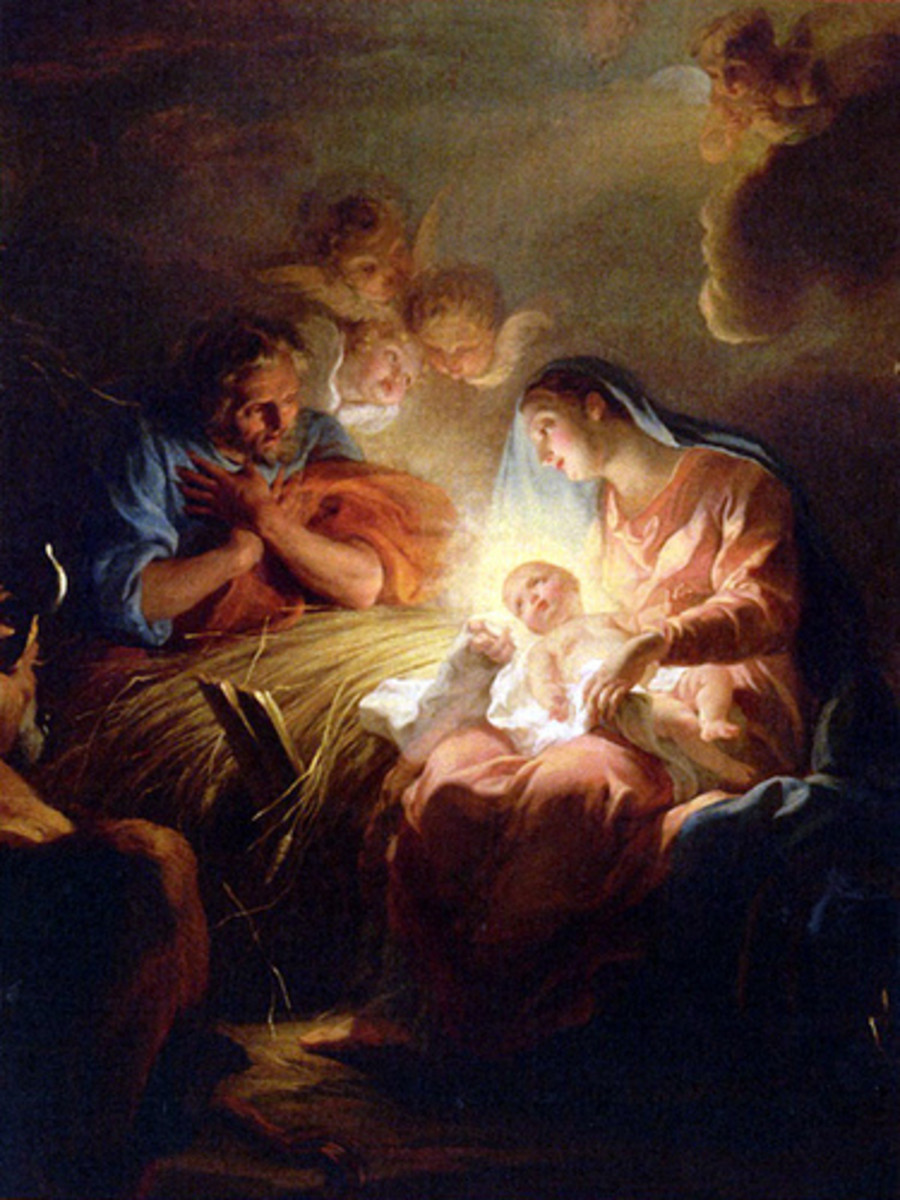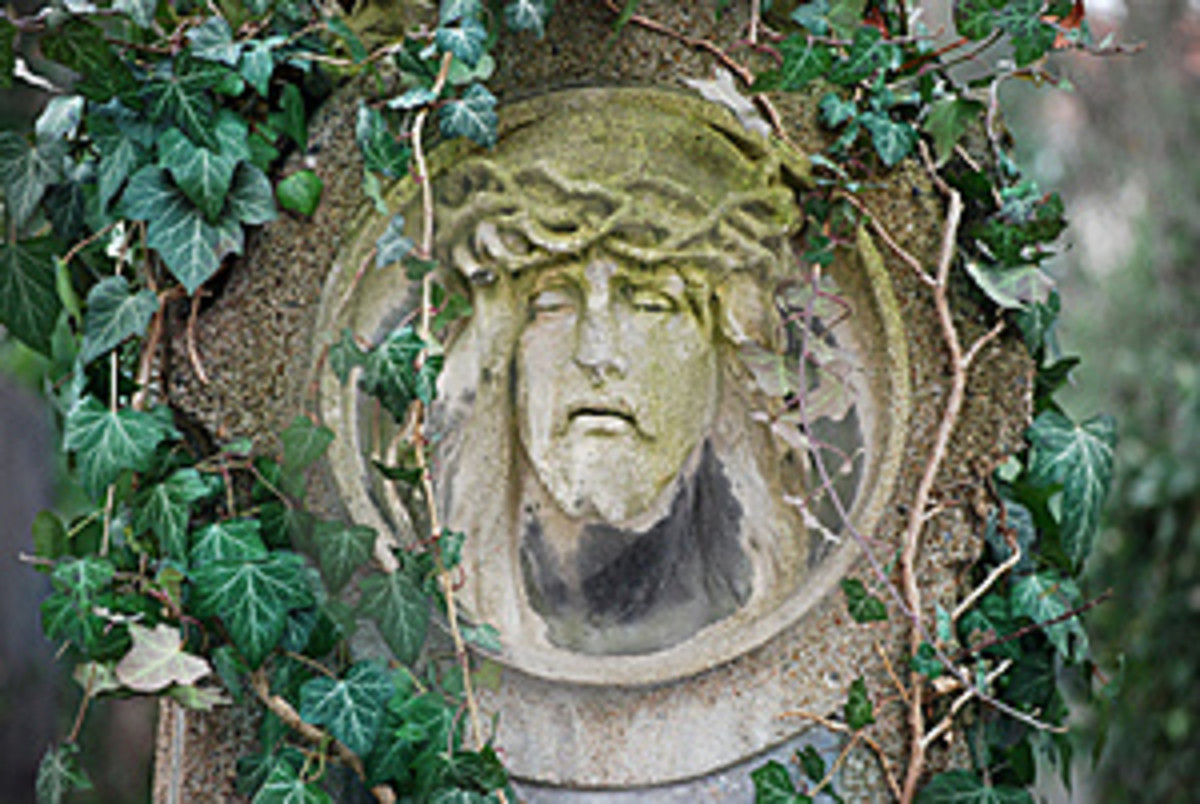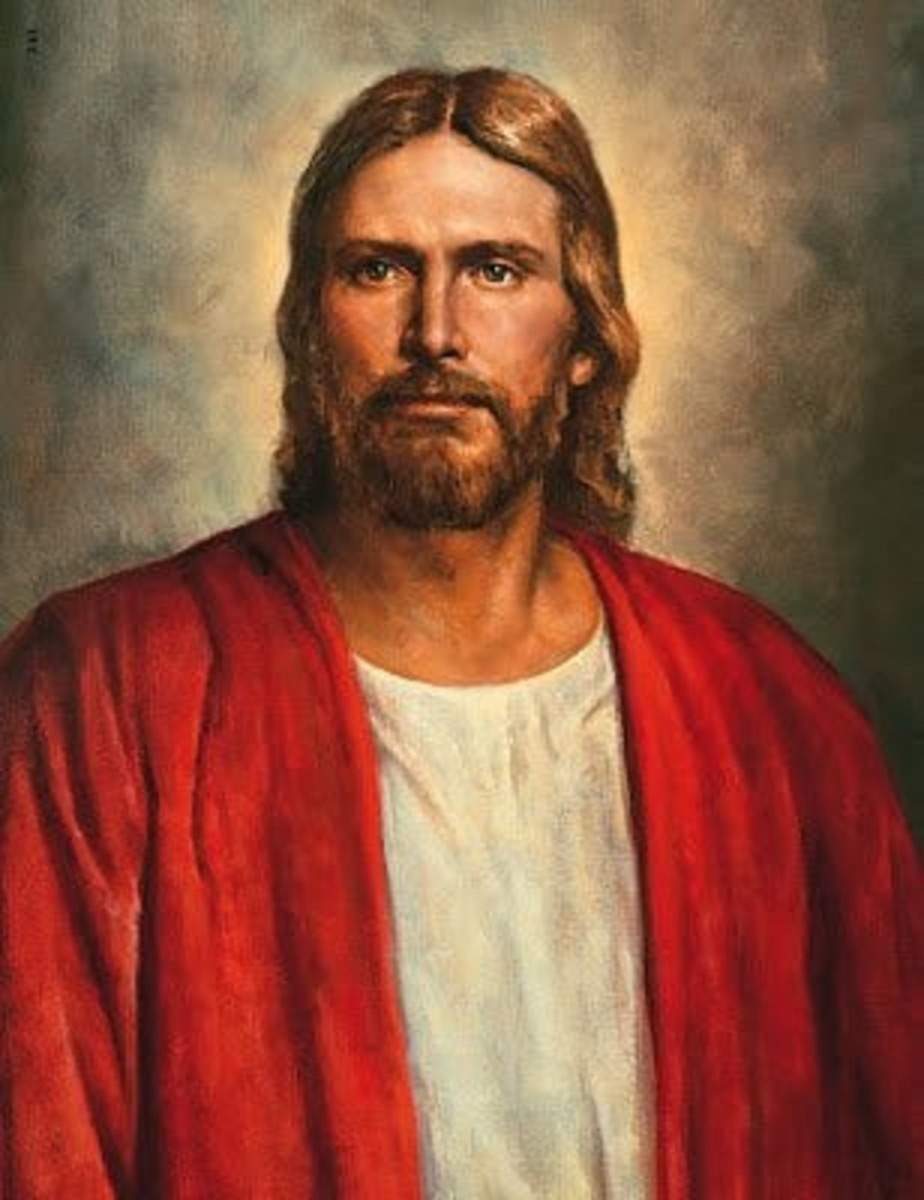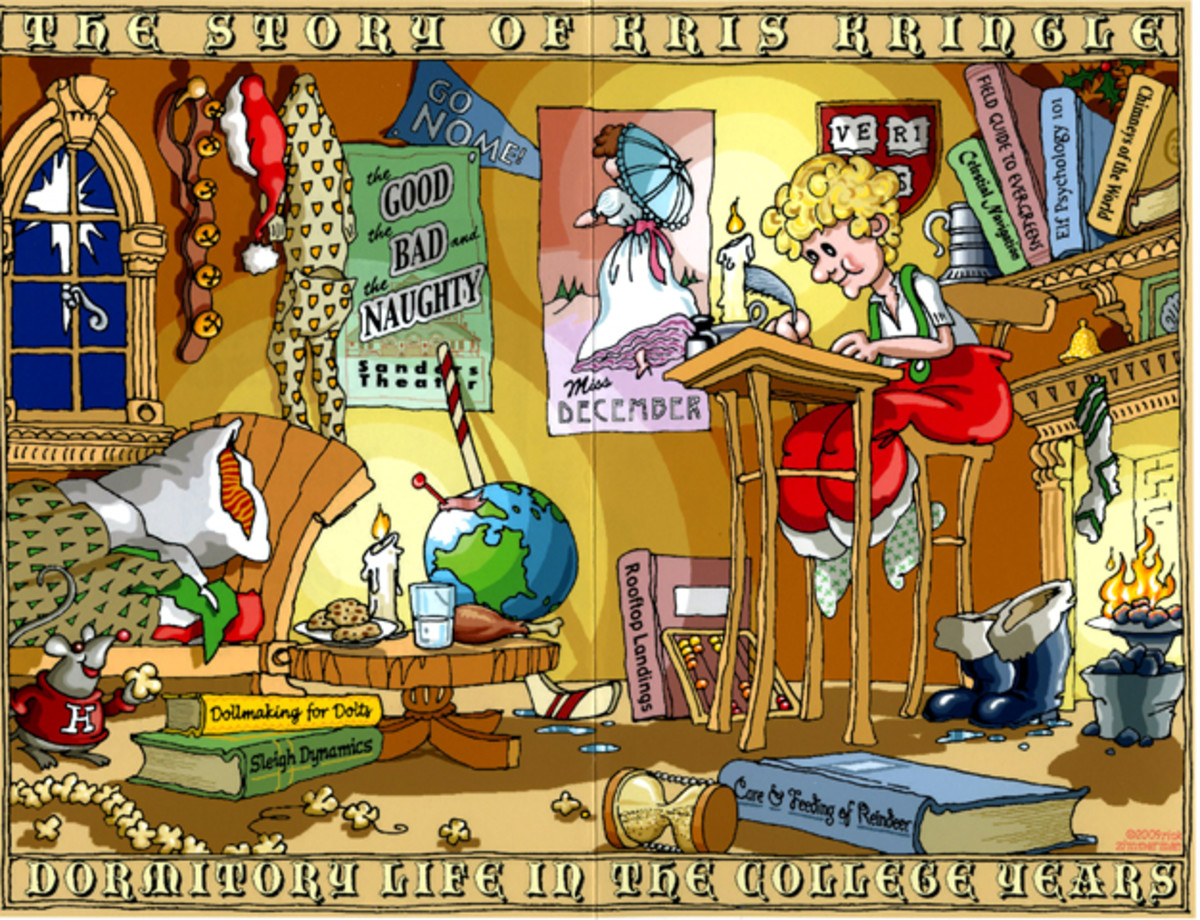Christmas Reconsidered: How the Holiday has Contributed to a Rise in Atheism
Does Christmas Really Honor Jesus Christ?
The question is almost rhetorical. I believe the answer to be an emphatic, no. Christmas does not honor Jesus Christ. I find that most of the time people believe the issue to be subjective. I do not. I believe there are black and white, yes and no, true and false, answers to the questions of origin and meaning that surround the holiday. I believe there are facts that demonstrate the holiday itself to be in direct opposition to God's word and that this opposition comes in the most dangerous form, one that presents itself in the name of God, one that has forged a pseudo-historical narrative surrounding the birth of the Messiah. In so doing what is arguably the most important event in human history, the birth of Jesus is mingled with legends, lore, and pagan tradition. As a result, the birth and life of Jesus Christ have itself become unjustly mythologized, a claim I will work to substantiate throughout this article.
Associating Myths with Historical Facts Harms the History, not the Myth
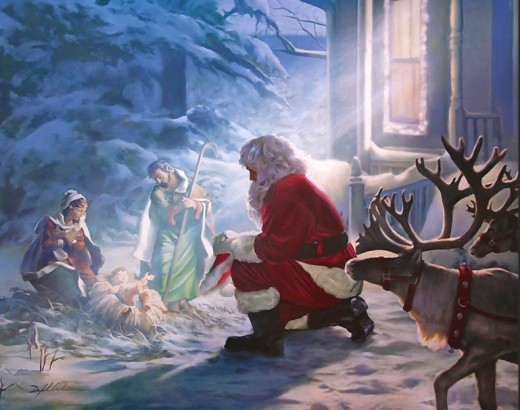
The Way, the Truth, the Life...
Rare is the individual of 2019 who hasn't heard about the pagan origins of Christmas. I don't want to take the time to make a case that has already been amply made by others. Besides, if you have the time I invite you to watch the videos I've included as they provide in-depth details regarding the origins of the day.
My focus in this article deals with what I believe an increasing disinterest and mistrust of the Bible, and of God. I believe it is the historic and modern churches, more than any other, that are responsible for this situation. Jesus said, "I am the way, and the truth, and the life..." John 14:6
Truth is an essential part of believing. I don't want to believe something that isn't true. I think most people think that way. Yet, "the truth" about the birth of Jesus occurring on December 25th is not true. Isn't it important for those that believe in him to safeguard the details of his life? Must lies be told about him beginning with his birth? If someone wished me a "happy birthday" on a day other than my birth I would correct them, wouldn't you? Isn't the birth of the Messiah of more importance than that? If we can't believe the account of the Messiah's birth as related in the gospel narratives, at what point and which details should we start believing? Did his baptism really happen? What about the miracles?
- healing the blind
- feeding the 5,000
- walking on water
- calming the sea with a word
- healing the severed ear of Malchus
I ask this question to the believer- Aren't these events important to you? If they are not why claim belief at all? For me, it is extremely important that these events be real. If they aren't I'm wasting my time. I think most students of the Bible agree. We believe the accounts of the miracles. We believe in the synchronicity of the gospel narratives and that the integrity of the Scriptures is maintained, one of the only exceptions being the practice of Christmas. I believe acceptance of this lie to be one reason for the assent of atheism at most, at least it contributes to people not taking the Scriptures seriously. If you don't believe me, consider the film Zeitgeist. This film by a young man named Peter Joseph has gained wide-spread acclaim in the 17-30 demographic. The film would be considered by some (like me) to be of a militant nature with a fair amount of conspiracy theories ranging from clandestine government intrigues to 9/11 conspiracies. However, the most disturbing portion of the film deals with the idea that Jesus Christ was never born, never existed, but is, in fact, a hybrid of religious figures throughout history. The film is rife with cartoonish imagery and mockery. The animations are crude, but effective.
Excerpt from Wiki Synopsis of the Film "Zeitgeist"
Part I claims that the Christian religion is mainly derived from other religions, astronomical assertions, astrological myths, and other traditions. In furtherance of the Jesus myth hypothesis, this part disputes the historicity of Jesus, who, it claims, is a literary and astrological hybrid, nurtured by political forces and opportunists.
I would draw the readers attention to the portion of the above quote which claims that Jesus is an "astrological hybrid." Now that term stems directly from the December 25th date selected for the birthday of Jesus. That day was celebrated by Mithra worshipers and was absorbed into the early Christian movement for a number of reasons:
- Emporer Constantine the Great (ruled the Roman empire from 324 A.D. to 337 A.D.) was himself a worshiper of Mithra, the Persian Sun God. As such he saw the incorporation of Christmas into Church practices as a way to placate and absorb pagan citizens of the Roman empire.
- Gentile Christians of the 2nd and 3rd centuries had driven the Jewish element out of the religion because Jewish people still believed in keeping the Sabbath, Passover, etc. Early Christians of the first century did as well, but slowly that began to change and the movement began to assimilate elements of the old pagan religions.
- By the 8th century the celebration of Christmas had spread throughout the Roman empire and picked up many other pagan practices along the way from Egyptians, Celts, as well as Germanic religious practices which involved "grove/tree worship."
James Frazer, in his book The Golden Bough, wrote, "Sacred groves were common among the ancient Germans, and tree-worship is hardly extinct amongst their descendants at the present day." (p. 58)
All of these extra-biblical reasons for incorporating the celebration of Christmas into Christianity are not lost on the atheist. In fact, it is these very facts to which the atheist pays most attention and uses them effectively to discredit God, His word, and His Son. It is the association of pagan practices with Jesus Christ that enables the atheist to come to the conclusion that all religions are the same, that there is nothing special about Jesus Christ. An already rebellious attitude furnished with facts about Christmas make them a formidable opponent of the faith. If believers would simply base their beliefs on what is written in the Bible, 90% of the atheists armory would be destroyed. It is the inconsistencies they prey upon and exploit, and the Church has given them the grounds and ability to do it.
I have further concerns for children at this time of year. I know many kids who have just "figured out" that Santa couldn't be real and they ease into that understanding with no apparent negative effects; but there are others who, upon hearing from an older sibling for example, find out with many tears that St. Nick doesn't exist. It seems to me that when a child has been deceived into thinking there's someone at the North Pole who watches over you, knows if you're bad or good, will bring you good gifts for doing what is right, that once they find out these things are not true, it would be difficult for them to believe in a heavenly Being who shares the same attributes. This is a theory of mine, I have no hard proof that a child is less inclined to believe in God once they've been misled ( all in good fun, I know) about Santa. But to a child, Santa is a real person who truly cares for them. If the child cries when they find out Santa isn't real parents may chide them, "Oh grow up." For the child it is the loss of a friend. Should we really take the chance of telling a child about a mythical figure we know isn't real, and then sharing the truth of the love of God, again who shares similar ubiquitous attributes with Santa? Isn't it at least possible that the child would be confused? Feel as if he's/she's been played for a chump? I don't take those chances, mainly because Jesus said,
"If anyone causes one of these little ones--those who believe in me--to stumble, it would be better for them to have a large millstone hung around their neck and to be drowned in the depths of the sea." Matthew 18:6 NIV
We all have the freedom to accept, reject, or interpret that verse however we will. I think my understanding/interpretation speaks for itself.
Pre-Christian Origin of the Christmas Tree

"Thus says the Lord, "Do not learn the ways of the nations and do not be terrified by the signs of heaven as the nations are terrified by them; for the customs of the people are a delusion; because it is wood cut from the forest, the work of the hands of a craftsman with a cutting tool. They decorate it with silver and gold, they fasten it with nails and hammers so that it will not totter." Jeremiah 10:2-4
When people of faith are confronted with those verses they have one of two reactions.
- They dismiss them as not relevant or as not counting anymore because it is in the so called "Old Testament," or...
- They say, "Wow- I didn't know that was in there! Maybe there is a connection between Christmas and paganism and maybe I shouldn't be observing it."
What I find interesting is that whether or not people think the verses are applicable to today's faithful, both groups recognize the similarity between this decorated tree from antiquity before Christ, and the Christmas tree.
You will see from the included videos that Christmas was previously celebrated as "Bacchanalia" by the Romans well before Jesus was born. The point I am trying to make in relation to the verses quoted from Jeremiah 10 is that I know there are some who would say,
"But those verses aren't talking about Christmas; they are talking about ancient pagan practices. I celebrate Christmas to honor the birth of Jesus Christ."
I've heard that response many times and this is the problem with it. In part, it's correct. The text in Jeremiah isn't directly talking about Christmas, it couldn't have because Jeremiah lived some 700 years before Jesus was born, so how could it be talking about Christmas? It was talking about Christmas in the sense that the characteristics of Christmas are consistent with the delusional "ways" of the nations. Of course Jeremiah didn't come right out and name the name of the pagan festival. He described "the ways" of the custom. God wisely excluded the exact name of the festival being celebrated so that we would focus, not on a name which can be easily changed, but to the manner and custom in which it was celebrated.
Just from reading the text quoted from Jeremiah, could any reasonable person doubt that if a pagan from 700 B.C. were transported in Dr. Who's time machine into a 21st century home that had erected a Christmas tree that the pagan would sense sameness? Would the pagan look at the tree and say, "Hmm...what an odd custom...I've never seen such a thing." Of course he would sense sameness, familiarity, unity. He might call the festival by a different name, but he would recognize the custom as, if not directly connected to his own, at the least relatable.
Christmas History in Under 3 Minutes
Did You Know?
The German name for Santa Clause, Kris Kringle (Krist Kindle), translates exactly to "Christ Child?" This acculturation contributes to the idea that "it's all the same" whether we're talking about Santa or Jesus, it all looks like fairy tales. That's the effect of assimilating/mixing pagan practices with holy ones. Jesus Christ seems no different to the world than the Easter bunny or Santa.
Summary
Atheists routinely thrash Christianity because of the inconsistencies they see within the faith, and it is Christianity that has provided the whip. If those who claim to follow the one who described himself as "the way, the truth, and the life," lived by the truth and insisted on maintaining the truths surrounding the birth of the Messiah, non-believers would be more inclined to consider the later events of the life of Christ as being true as well.
To finish on a personal note: When I was in my early 20's I began to learn about the origins of Christmas and it was devastating to me. I had grown up believing what I heard one minister in particular say: "Christmas is the gold that binds the Bible." When I learned that Christmas isn't even mentioned in the Bible, I began to question the validity of, not the misinformed minister, but of the Bible itself. That discovery opened the door to a long list of theological problems created by the Church's allowance of pagan customs to enter the faith. I teetered on the brink of atheism myself not knowing if I could trust the Bible, hence God, anymore. Only when I left the Church system and began praying to God myself, and reading His Word did I come to saving faith. Ironically, Christianity had robbed me of the faith God had been trying to impart to me all along, and by failing to be a good student of the Word, I had let it happen. My encouragement to you is to NOT take the word of any minister or pastor or so-called expert when it comes to knowing God and His Word. Faith is the ultimate DIY project. Remember, professionals built the Titanic, an amateur built the ark.
Blessings friends.
Recommended Reading
- The Age of Faith- by Will Durant: Simon and Schuster
- History of Christianity- by Kenneth Scott Latourette: Harper
- The Two Babylons- by Reverend Alexander Hislop: Loizeaux Brothers
© 2019 Leland Johnson

